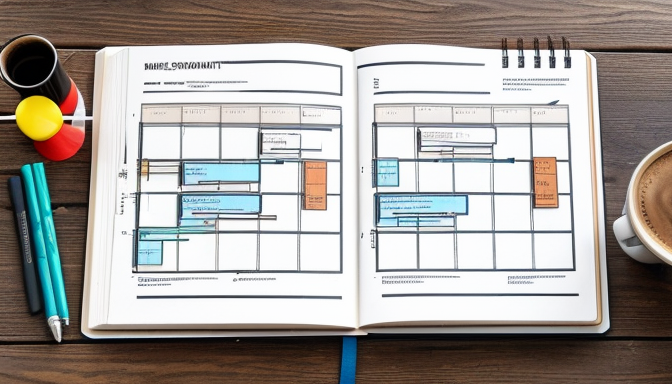This article explores effective training plans that can guide you toward achieving your goals. Discover valuable insights and strategies to enhance your skills and maximize your potential.
Training plans are crucial for personal and professional development. They provide structured pathways to improve skills, boost confidence, and achieve long-term success in various fields.
An effective training plan includes specific goals, timelines, and resources. Understanding these components will help you create a tailored approach that aligns with your individual needs and aspirations.
Are you ready to dive into the world of swimming? Structured swimming workouts can transform your abilities, whether you’re just starting out or looking to refine your advanced techniques. Think of your training plan as a blueprint for success—every stroke, every kick, and every breath counts!
For beginners, starting with simple routines is essential. These can help build your confidence and technique. As you progress, more advanced training schedules can be introduced to challenge you further. Here’s a quick overview of what a typical training plan might look like:
| Level | Focus | Duration |
|---|---|---|
| Beginner | Basic Techniques | 30-45 minutes |
| Intermediate | Endurance & Speed | 45-60 minutes |
| Advanced | Competitive Skills | 60-90 minutes |
By following a structured plan, you not only improve your swimming skills but also enhance your overall fitness. It’s like building a house; you need a solid foundation before adding the roof. So, are you ready to take the plunge and elevate your swimming game?
Understanding the Importance of Training Plans
Have you ever jumped into a swimming pool without knowing how to swim? It can be daunting, right? Just like that, diving into your personal or professional development without a training plan can lead to confusion and frustration. Training plans are the compass that guides you through the waters of improvement. They are essential for anyone looking to enhance their skills and build confidence. Think of them as your roadmap; without a clear route, you could easily get lost.
The beauty of a training plan lies in its structure. It breaks down your goals into manageable chunks, making the journey less overwhelming. Whether you’re looking to boost your performance with structured swimming workouts—from beginner routines to advanced training schedules—or aiming for a promotion at work, having a plan is crucial. With a well-defined path, you can track your progress, celebrate small wins, and adjust your strategies as needed.
So, why should you care about training plans? Here are a few key reasons:
- Clarity: They provide a clear vision of what you want to achieve.
- Motivation: Seeing progress keeps you motivated and engaged.
- Efficiency: Structured training saves time and maximizes results.
In essence, training plans are not just a list of tasks; they are your partners in success, ensuring that every stroke you take in the pool of life brings you closer to your goals.

Key Components of an Effective Training Plan
When it comes to crafting an effective training plan, structure is your best friend. Think of it as the blueprint for a skyscraper; without a solid foundation, everything else crumbles. A well-designed training plan should be tailored to your unique goals, whether you’re looking to improve your swimming technique or boost your overall fitness. The key components of a successful training plan include:
- Specific Goals: Start by defining what you want to achieve. Are you aiming to swim faster, build endurance, or master a new stroke? Clear goals will guide your training sessions.
- Timelines: Establish a timeline for your training. This helps you stay on track and measure your progress. Whether it’s a few weeks or several months, having a deadline creates a sense of urgency.
- Resources: Identify the resources you need. This could be access to a swimming pool, training equipment, or even a coach who can provide expert guidance.
But remember, it’s not just about the components; it’s about how you put them together. For instance, a beginner swimmer might start with a structured routine that gradually increases in intensity, while an advanced athlete might focus on specific drills to refine their technique. The beauty of a training plan is its flexibility—adapt it as you progress and watch your performance soar!
Incorporating these elements will not only enhance your skills but will also keep you motivated. So, are you ready to dive into your training journey and unlock your full potential?
Frequently Asked Questions
- What are training plans and why are they important?
Training plans are structured guides designed to help you enhance your skills and reach your goals. They’re like a roadmap for your personal and professional growth, ensuring you stay focused and motivated along the way.
- How do I create an effective training plan?
Start by identifying your specific goals. Then, set realistic timelines and gather the necessary resources. Think of it as building a bridge: you need a solid foundation (goals), a clear path (timeline), and the right materials (resources) to cross to success!
- Can training plans be adjusted?
Absolutely! Life is unpredictable, and flexibility is key. If something isn’t working, don’t hesitate to tweak your plan. It’s all about finding what works best for you and adapting as you grow!
- How often should I review my training plan?
Regular reviews are essential! Consider checking your plan every month or after reaching a significant milestone. This helps you stay on track and make necessary adjustments to keep your momentum going.